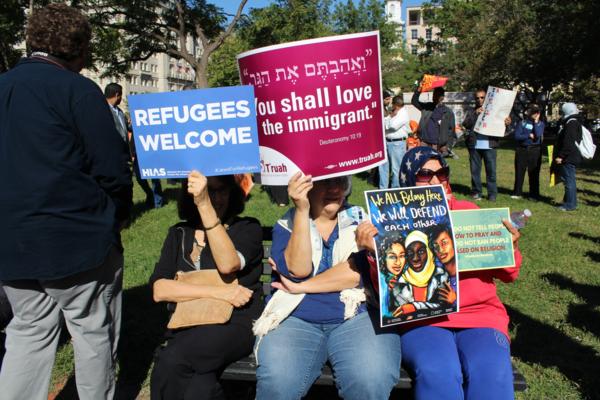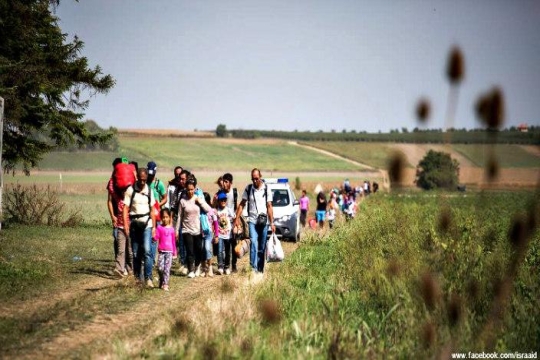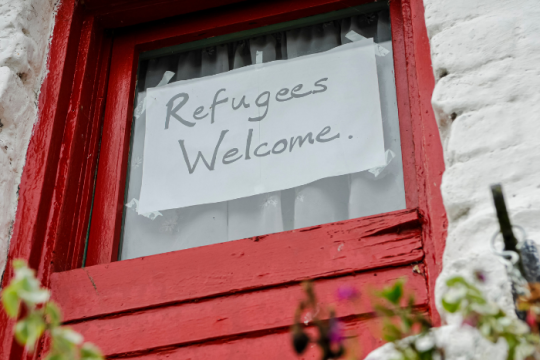
Every year on June 20, we honor the resilience and courage of refugees and celebrate their contributions to our communities and to our entire nation.
Today, we face a global refugee crisis of an unprecedented scale. The 65.5 million people displaced worldwide exceeds any number in recorded history. The number of refugees worldwide has risen to 22.5 million, over half of whom are under the age of 18. We see crises like that in Syria, where 50% of its current population is displaced[i], and Burma, a situation that’s been described as the world’s fastest growing refugee crisis[ii]. It’s difficult to imagine a solution for such a massive challenge.
In 1947, the United Nations founded the International Refugee Organization (IRO) as a direct action to assist those displaced by World War II. Five years later, when the IRO ceased operation, it was replaced by the fairly new United Nations program called the UN High Commissioner for Refugees (UNHCR), an institution which still functions as a primary international refugee assistance and resettlement agency. With the development of this program came a dedication from various nations to the resettlement of refugees through international standards laid out in the 1951 Refugee Convention. In the United States, the Refugee Act of 1980 ensured that refugee resettlement was an ongoing undertaking. Similarly, Canada’s Immigration and Refugee Protection Act outlines standards and protocol regarding refugee processing and resettlement. Together, the United States and Canada became global leaders in refugee resettlement, although more recent events have challenged this narrative, and the two nations’ policies differ in how they are reacting to the current crisis.
Prior to President Trump’s announcement of the fiscal year 2018 refugee admissions cap, Rabbi David Saperstein, Director Emeritus of the Religious Action Center of Reform Judaism, said, “America cannot save all the world’s refugees by itself. The argument that we cannot do everything, however, must never be used to justify doing less than that of which we are capable.”
Rabbi Saperstein touches on an important teaching. Pirkei Avot reminds us, “It is not your responsibility to finish the work, but neither are you free to desist from it” (Pirkei Avot 2:16). By no means does this text give answer to the larger question of how to ‘fix’ the global refugee crisis, but it requires that we never look at a problem as so big that we no longer have the responsibility to try and change it.
The UNHCR estimates the global resettlement needs in 2018 to be close to 1.2 million people.[iii] In the middle of June 2018, the United States is on track to resettle around 20,000 refugees in FY18, which is less than half of the refugee admissions cap. In contrast, Canada has planned to resettle between 8% and 12% of that estimated 1.2 million people,[iv] which turns out to be between 96,000 and 144,000 refugees. We know these numbers pale in comparison to the scope of the global refugee crisis, and we continue to urge our governments to offer a framework for robust and just refugee resettlement.
It feels equally as impossible to stand idly by and wait for the violence to stop as it does feel impossible to take meaningful and impactful action. Our Jewish history and our sacred texts compel us to take action and protect the most vulnerable among us. Here are three ways to take action around World Refugee Day:
- Prepare to raise your voice in response to the forthcoming the Supreme Court ruling in Trump v. Hawaii, a case challenging the legality of the Trump Administration’s discriminatory travel ban.
- Urge the U.S. Congress to hold the Burmese military accountable for ethnic cleansing and restore human rights and dignity to the Rohingya people.
- Bring this issue into your congregation or Jewish community by hosting a conversation or text study about the Jewish responsibility to welcome refugees and immigrants.
1. https://www.amnestyusa.org/syrias-refugee-crisis-in-numbers/
2. https://www.unocha.org/rohingya-refugee-crisis
3. http://www.unhcr.org/en-us/protection/resettlement/593a88f27/unhcr-projected-global-resettlement-needs-2018.html
4. https://www.canada.ca/en/immigration-refugees-citizenship/corporate/publications-manuals/departmental-plan-2017-2018/departmental-plan.html#sec01
Related Posts

World Refugee Day 2022

Welcoming the Stranger: How Reform Congregations are Taking Action for Refugees


